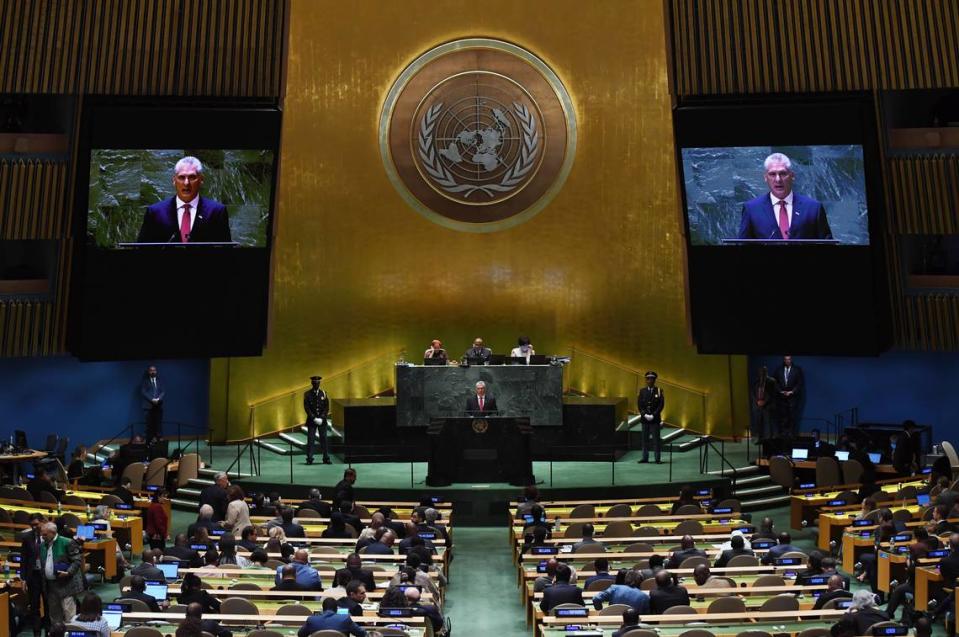Despite jailing critics and dissidents, Cuba keeps seat on U.N. Human Rights Council
Cuba was reelected Tuesday to the United Nations Human Rights Council despite criticism from several advocacy groups and activists about the island government’s imprisonment of over a thousand peaceful protesters and dissenters.
Notably, Russia, which was kicked out of the council last year after its invasion of Ukraine, could not win its seat back.
Cuba received 146 votes, and Russia only 83. The council members are elected by the 193 U.N nations with a simple majority of 97 votes for a three-year term. Candidates are selected by region.
The Cuban government quickly celebrated the diplomatic victory on social media.
“The reelection of Cuba to the Human Rights Council is a recognition by the international community of the humanist work of the Revolution,” Cuban Foreign Affairs Minister Bruno Rodríguez said on X. “We will continue on our path towards building a more just society for all.”
The election of Cuba and other authoritarian nations like China adds to the debate over the council’s fairness and its real power to hold human-rights violators accountable.
Nikki Hailey, a Republican presidential candidate and former U.S. ambassador to the U.N., Nikki Hailey, weighed in after the vote, calling the council “a farce.”
“China and Cuba are some of the worst human-rights abusers in the world, and today they won reelection to an entity that is supposed to protect human rights,” she said in a statement. “I’ve said it before, and I’ll say it again: the U.N. Human Rights Council is a sham and an organization that is not worthy of its name.”

Ahead of the vote a joint report by U.N. Watch, Human Rights Foundation and the Raoul Wallenberg Center for Human Rights, three non-government organizations that promote human rights around the world, highlighted that authoritarian governments have used the seat at the council to protect abusers and have failed to advocate for the victims.
The report deemed Cuba, Russia, China, Burundi, and Kuwait as “unqualified” to be part of the council. The last two countries also won their seats on Tuesday.
“Cuba is an authoritarian, undemocratic, one-party communist state [that] continues to quash all dissent, prohibit independent media, and severely restrict basic civil liberties,” the report says. “Cuba commits serious human rights violations, including unlawful or arbitrary killings.… torture and cruel, inhuman and degrading treatment of political dissidents, detainees, and prisoners by security forces; harsh and life-threatening prison conditions; arbitrary arrests and detentions.”
Cuban exiles and activists had called on the international community to reject the country’s candidacy.
“Naming Raul Castro and his puppet Miguel Díaz-Canel to sit on the world’s human-rights body would be like placing Jack the Ripper on the committee to end knife violence in London,” said John Suarez, the executive director of the Center for a Free Cuba.
“If Cuba is reelected to the Human Rights Council, it will be with the support of complicit states,” Cuban activist Carolina Barrero said on X. “We Cubans, human rights organizations and activists, condemn the reelection of a bloody dictatorship that has plunged our country into misery and oppression.”
As a current member of the Human Rights Council, Cuba has opposed resolutions speaking out for human-rights victims in Iran, Syria, Belarus, Burundi, Nicaragua and Venezuela, the joint report says, and has not supported resolutions to support victims in Ukraine.

